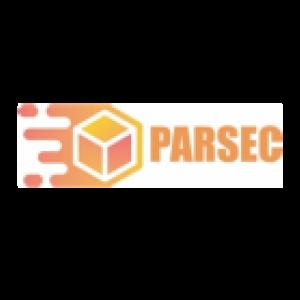 \
&
Contact us
\
&
Contact us
 \
&
Contact us
\
&
Contact us
Published on | 7 months ago
Programmes Digital, Industry & Space Digital EuropeWe would like to draw your attention to the following cascading calls for proposals. This is an update of the overview we published in summer.
A cascading call is a funding mechanism where a larger project, already funded by Horizon Europe or other funding programme, distributes part of its funds to smaller projects through its own call for proposals. As an applicant to a cascading call, you would be applying to receive a portion of the funding managed by this larger project.
From your perspective, this process involves finding a cascading call that aligns with your project's goals and submitting a proposal to the organization managing the larger project. If your proposal is successful, you'll receive funding to support your research or innovation activities. This approach allows Horizon Europe to efficiently distribute funds to a wider array of smaller projects, encouraging diverse and innovative contributions to the overarching goals of the program. Essentially, you're benefiting from a secondary layer of funding opportunities, making it easier for smaller or more niche projects to access financial support.
NGI Taler - Supports the development of technology commons that empower users and establish a new generation of privacy-friendly digital payment systems.
- Funding range: €5,000 - €50,000
- Deadline: 1st December 2024
NGI Mobifree - Supports solutions for an open mobile ecosystem.
- Funding range: €5,000 - €50,000
- Deadline: 1st December 2024
NGI Fediversity -Aims to bring easy-to-use, hosted cloud services with service portability and personal freedom at their core to everyone.
- Funding range: €5,000 - €50,000
- Deadline: 1st December 2024
NGI Sargasso - Creates a collaborative ecosystem to harvest EU-US or EU-Canada technology breakthroughs that revolutionize the Next Generation Internet technologies, services, and standards, contributing to a human-centric approach of the internet commons.
- Funding up to: €100,000
- Deadline: 25th November 2024
NGI Review - Offers free services to NGI grantees, including support with accessibility, diversity and inclusion management, community building and mentoring, copyright and license due diligence, internationalization, translation and localization, packaging, security audit, and standardization.
- Deadline: 31st July 2025
DS4SSCC-DE - The European Data Space for Smart Communities opened early June and is for pilots for local public administrations and other entities working with them (companies, academia, NGOs) addressing Green Deal sectors and New European Bauhaus domains. This is the first round of calls for pilots, 2 more rounds are foreseen to open in September and December.
- Funding up to: €1.5M
- Deadline: 30th November 2024
Enfield Project - supports R&D activities to develop fundamental research in the areas of Adaptive, Green, Human-Centric, and Trustworthy AI systems.
- Funding up to: €60,000
- Deadline: new calls coming up in Spring 2025
We offer news and event updates, covering all domains and topics of Horizon Europe, Digital Europe & EDF (and occasionally, for ongoing projects, Horizon 2020).
Stay informed about what matters to you.
By signing up, you can opt in for e-mail notifications and get access to
a personalised dashboard that groups all news updates and event announcements in your domain(s).
Only for stakeholders located in Flanders

PARSEC, funded under Horizon Europe Cluster 3 Call 'Advanced detection of threats and illicit goods in postal and express courier flows' aims to solve challenges facing eCommerce caused by threats and illicit goods in postal and express courier flows. The Flemish company CBRA Services coordinates the project.